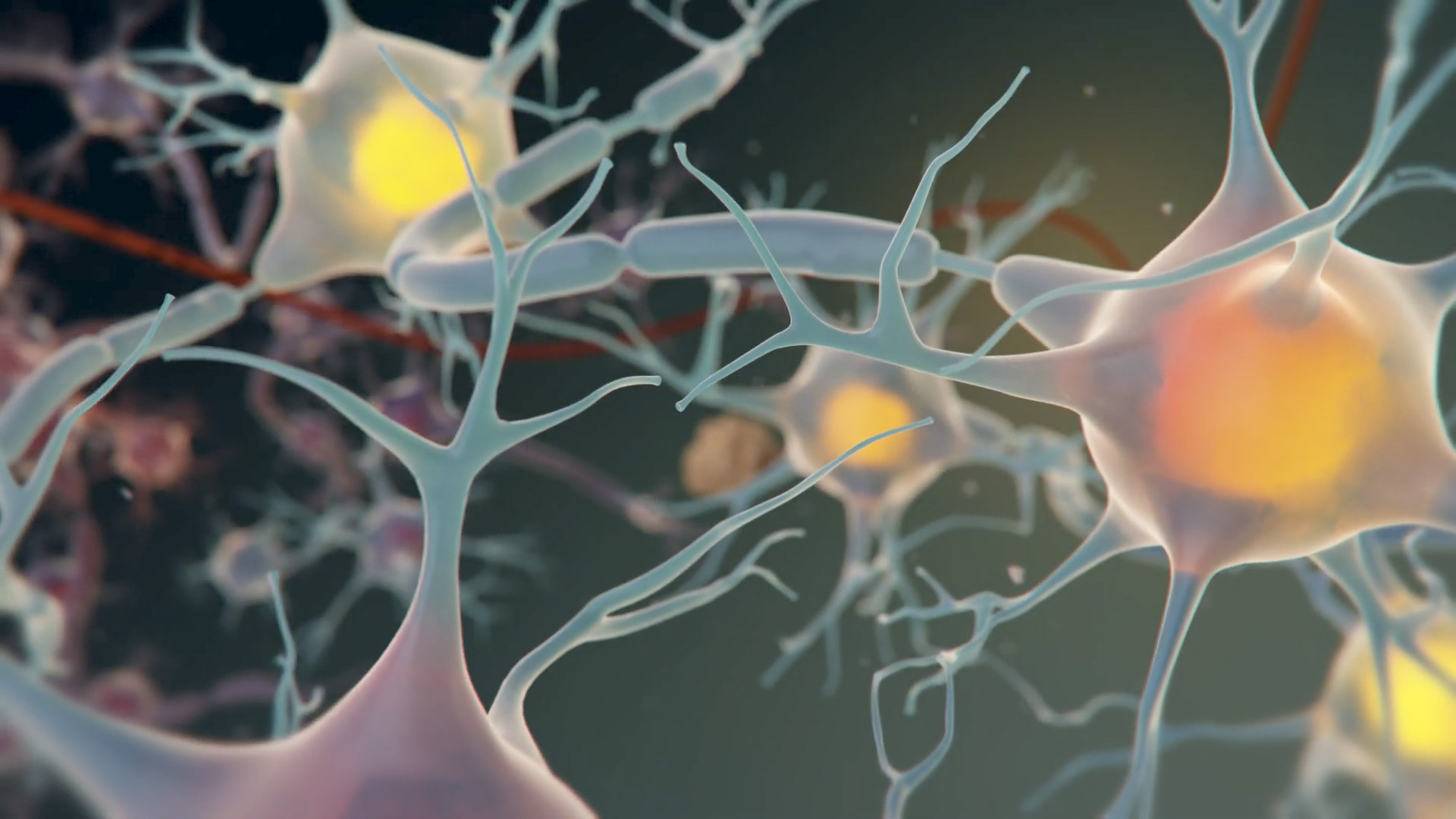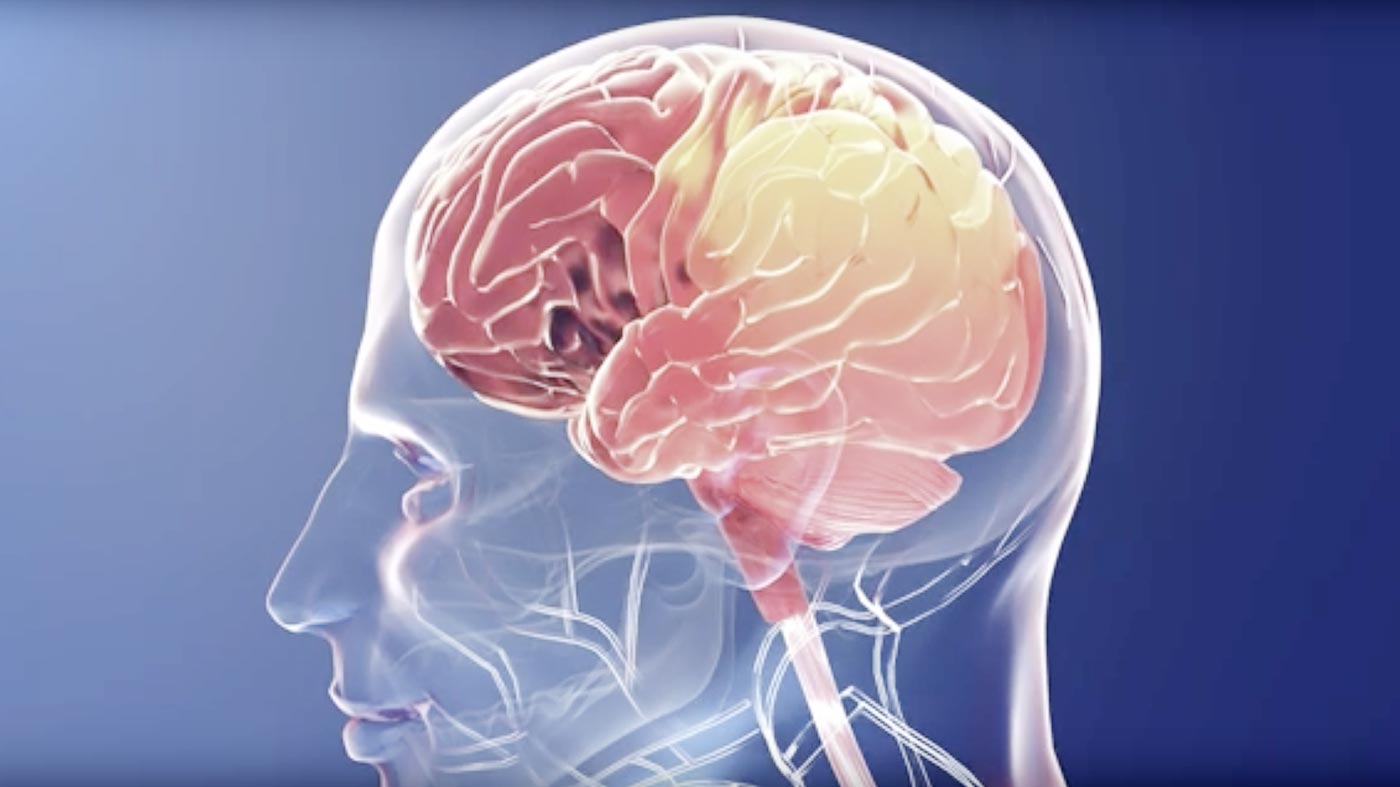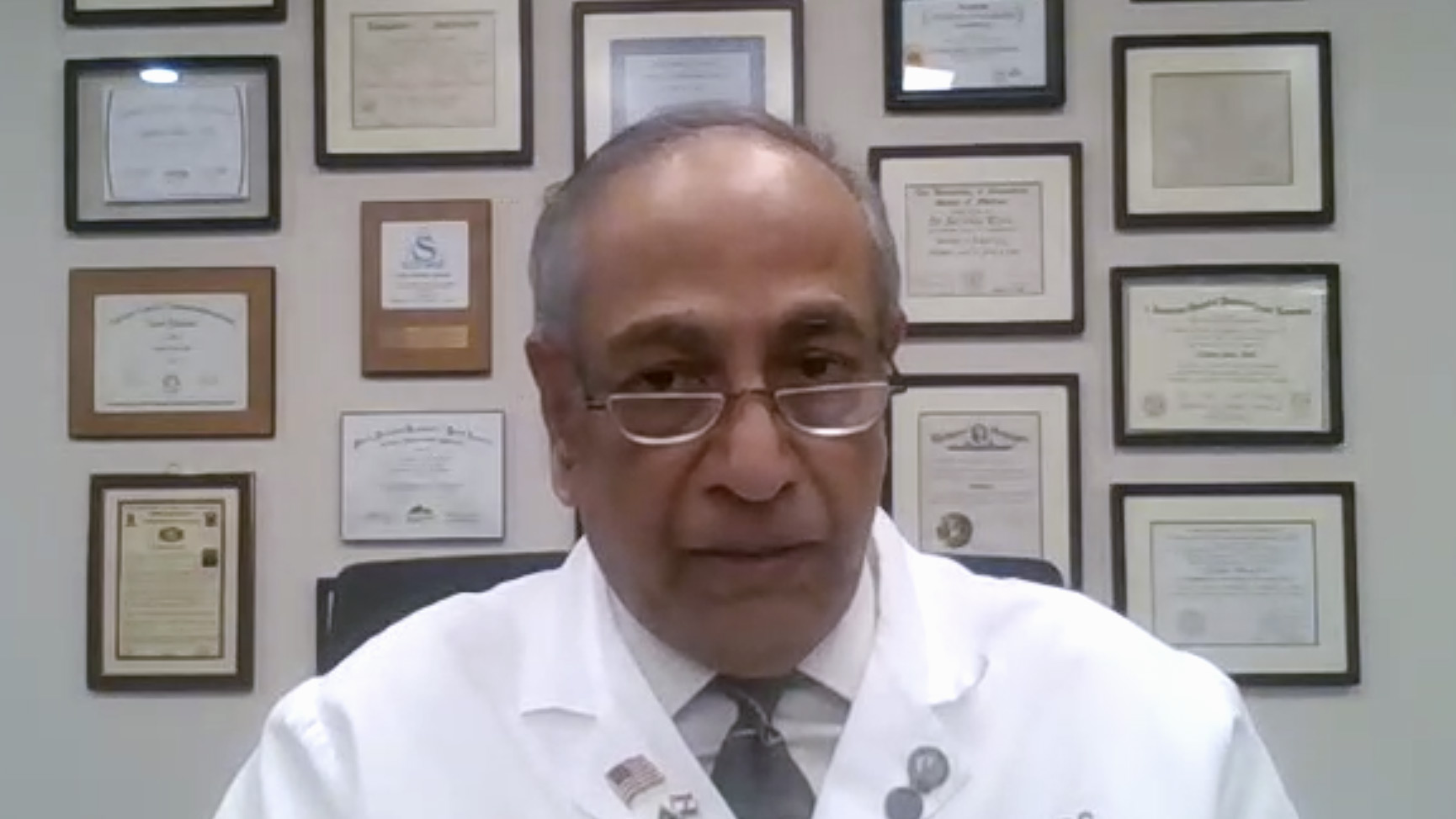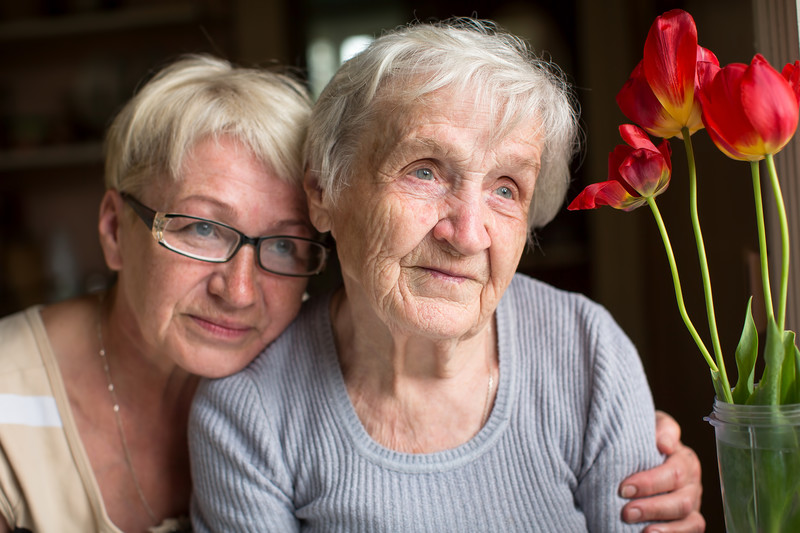Athira Pharma is a clinical stage biotechnology company with the mission to restore lives by advancing bold therapies, thoughtfully and urgently. With our platform of innovative regenerative brain-penetrant small molecule therapeutics, our focus is on restoring neuronal health for those suffering from neurological diseases so that patients can regain their memories, lives, and family relationships. Our lead asset, ATH-1017 is in late-stage clinical studies for Alzheimer’s disease. ATH-1017 is also being studied outside of Alzheimer’s disease in both Parkinson’s disease dementia and dementia with Lewy bodies. Beyond our lead asset, our platform of novel therapeutics has the potential to impact other neurodegenerative and neuropsychiatric conditions ranging from depression, MS, and neuropathy. Our motivated and impassioned team working to provide better care for people through innovative research and accessible products committed to making a positive impact on human health.

Alzheimer’s Clinical Trials: Finding Participants
Courtesy of Athira Pharma, Psychiatrist and Medical Director Bernardo Ng of the Sun Valley Research Center joins Suzanne to talk about how they reach out to the Latino community to find participants for Alzheimer's clinical trials.
Why Latinos Hesitate on Alzheimer’s Clinical Trials
Medical Director Bernardo Ng talks about why Latinos are often hesitant to participate in Alzheimer's clinical trials, beginning with having less access to trial centers, as well as fear of being in a research trial and the fear of being diagnosed with Alzheimer's. Courtesy of Athira Pharma.
Challenges for Latinos and Alzheimer’s Clinical Trials
Psychiatrist and Medical Director Bernardo Ng of the Sun Valley Research Center joins Suzanne to talk about specific challenges for the Latino community in signing up for Alzheimer's clinical trials, courtesy of Athira Pharma.
Alzheimer’s Clinical Trials and Underserved Minorities
Courtesy of Athira Pharma, Psychiatrist and Medical Director Bernardo Ng of the Sun Valley Research Center joins Suzanne to talk about Alzheimer's clinical trials, particularly in underserved groups such at the Latino populations in the United States.
Get Alzheimer’s Treatments in Clinical Trials
Dr. Michael Mega, director of the Center for Cognitive Health in Portland, OR, talks about the best way to get treatments right now for Alzheimer's is to take part in a clinical trial.
Advances in Early Detection for Alzheimer’s
Dr. Michael Mega, director of the Center for Cognitive Health in Portland, OR, talks about being able to detect biomarkers for the tau and amyloid plaques that are believed to cause Alzheimer's.
Avoiding the Paths That Cause Alzheimer’s
Dr. Michael Mega, director of the Center for Cognitive Health in Portland, OR, talks about how diet, lifestyle, cognitive stimulation, and genetics all play into the paths to influence whether we can avoid Alzheimer's.
All About Alzheimer’s Clinical Trials, Part 2
Kevin Church, Chief Science Officer of Athira Pharma, provides an overview of clinical trials, how to find clinical trial locations, and what sorts of things the doctors are looking for in a participant.
All About Alzheimer’s Clinical Trials, Part 1
Kevin Church, Chief Science Officer of Athira Pharma, provides an overview of what happens in a trial, how long they last, and the different kinds of clinical trials.
Reversing Brain Cell Damage from Alzheimer’s
Kevin Church, Chief Science Officer of Athira Pharma, joins Suzanne to talk about what happens to the brain when someone has Alzheimer's, and how Athira's clinical trial aims to reverse damage done to brain cells by Alzheimer's.
Pandemic’s Impact for Those with Dementia
Kevin Church, Chief Science Officer of Athira Pharma, joins Suzanne to talk about the pandemic's effect on dementia patients, as well as clinical trials developing treatments for Alzheimer's.
Getting Involved in Alzheimer’s Research Studies
Dr. Paul Winner: “The most advanced evaluations and treatments are inside the research. We are recruiting for an Athira research study and many other studies.”
Advances in Alzheimer’s Research
Dr. Winner says, “We do not have the ability today to stop Alzheimer's dementia. We're working to that. But we can slow the progression of the illness.”
Test Procedures for Dementia
Dr. Paul Winner advises, “If you really have a problem, something that's essentially now affecting the family, you need to go to a memory disorder center. We have very good diagnostic methods today. It could be something simple.”
Lifestyle Changes to Avoid Dementia
Suzanne is joined by Dr. Paul Winner, Senior Director of the Premiere Research Institute in Florida. He advises specific lifestyle changes, such as exercising and controlling blood pressure, that can help you avoid getting dementia.
Memory Loss is Not Normal In Aging
Suzanne is joined by Dr. Paul Winner, Senior Director of the Premiere Research Institute in West Palm Beach, Florida. Dr. Winner emphasizes, “Memory loss is not normal in aging. That is very clear to us now as we study this.”
Tips for Managing Caregiver Stress
Amy Schenk, community engagement lead at the Neuropsychiatric Research Center of Southwest Florida, joins Suzanne courtesy of Athira Pharma to talk about handling caregiver...
How Memory Evolves as We Age
Certified Dementia Practitioner Amy Schenk joins Suzanne from Cape Coral, Florida, courtesy of Athira Pharma to talk about the difference between normal memory issues as a result of aging and abnormal issues, and indicators to watch for. What happens to our brains as we age normally, as well as what happens when it's not so normal. If you are seeing things that are different in the person you're concerned about, things that make you think "That's not like them," listen to your intuition.
Brain Health and Caregiving
Amy Schenk, community engagement lead at the Neuropsychiatric Research Center of Southwest Florida, joins Suzanne courtesy of Athira Pharma to talk about cutting-edge clinical trials. She educates, represents, supports and encourages people to take care of their brains. They talk about the stress of caregiving and risks for Alzheimer's disease. Preventative measures that are good for your heart are also good for your brain. Adequate sleep, a good diet, and hydration are important. Set healthy boundaries for yourself as a caregiver.
Pandemic Effects on Alzheimer’s Disease
Certified Dementia Practitioner Amy Schenk joins Suzanne from Cape Coral, Florida, courtesy of Athira Pharma to talk about the impacts of the pandemic on families and people with Alzheimer’s disease. Amy also educates in both Assisted Living and Long Term Care environments.
Joining an Alzheimer’s or Parkinson’s Clinical Trial
Athira Pharma has a clinical trial right now for patients that potentially could treat people with any type of degenerative brain disease. It is being tested now with people who have Alzheimer's disease in mid stages and also with people who have Lewy body disease and Parkinson's disease. The medication speeds up thinking and processing and a long-term effect of increasing connections between brain cells.
Suzanne Newman talks with Dr. Michael Mega, Director of the Center for Cognitive Health in Portland, Oregon. The center helps patients maximize their cognitive function as they cope with Alzheimer's disease and disorders of thinking.
How Are Alzheimer’s and Parkinson’s Diseases Diagnosed?
This segment focuses on medical diagnoses for Alzheimer's disease, Lewy body dementia and Parkinson's. The field is rapidly changing. We now have biological markers for Alzheimer's: mis-folded proteins in the brain is the common thread for all degenerative diseases, including Parkinson's disease, Lou Gehrig's disease, and frontotemporal degeneration Pick's Disease. Being able to visualize these in PET scans (Positron Emission Tomography) lets us make a definitive diagnosis 15 years before someone begins having memory problems.
Alzheimer’s or Normal Forgetfulness: How to Tell the Difference
Suzanne Newman is joined by Dr. Michael Mega, Director of the Center for Cognitive Health in Portland, Oregon. Dr. Mega answers: How do you tell the difference between normal age-related forgetfulness and the beginnings of Alzheimer's?
Clinical trial for Lewy body dementia, part 4
This segment focuses on misconceptions of clinical trials and who qualifies for the Lewy body dementia clinical trial. Dr. Daniel Burdick, a physician's investigator at Evergreen Hospital Medical Center in Kirkland, Washington, covers these topics with Suzanne Newman.
Clinical trial for Lewy body dementia, part 3
This segment focuses on what doctors test in the Lewy body dementia clinical trial, as well as the importance of the study participant's care partner. Dr. Daniel Burdick walks Suzanne Newman through these aspects of the clinical trial. In the shape trial, doctors are looking at elements of safety and efficacy. Safety issues include studying bloodwork, physical exams, and checking things like changes in mood. The efficacy of the medication is studied by assessing the participant's cognition: the person's ability to remember, recall, fluidly use words, retain their focus and comprehension, and plan and follow events. They'll be asked to recall words and draw figures, and these are compared from the beginning to the end of the trial. Doctors also measure brain waves with EEG to get more objective data than they can from asking questions.
Clinical trial for Lewy body dementia, part 2
This segment focuses on what it means to be involved in the Lewy body dementia shape trial. Dr. Daniel Burdick, a physician's investigator at Evergreen Hospital Medical Center in Kirkland, Washington walks Suzanne Newman through the process. Participating in a clinical trial is a donation of time to the global effort to develop better treatments for Parkinson's disease and Dementia with Lewy Bodies. It can be involved. This particular trial is a 6-8 month process with 9 or 10 visits to the Kirkland site, one every 4-6 weeks, each one a couple to several hours each, with doctors spending lots of time with them. Doctors ask detailed questions and get to know their experiences in much greater detail, and people have said that it's a positive experience because they feel really connected. A research coordinator becomes their navigator through the trial.
Clinical trial for Lewy body dementia, part 1
Dr. Daniel Burdick from the Evergreen Hospital Medical Center in Kirkland, Washington, joins Suzanne to talk about Lewy body dementia. It encompasses two separate disorders: Parkinson's dementia and Dementia with Lewy Bodies, which are very similar. One of the best ways to make your future better, if you have dementia, if you want to be proactive with the disease, is to volunteer in a clinical trial.
Alzheimer’s disease clinical trials, Part 4 with Dr. Cherian Verghese
Learn about the different types of Alzheimer's research studies, what's involved in participating, and how you can get involved. Suzanne Newman joins Dr. Cherian Verghese, Principal Researcher at the forefront of Alzheimer's disease at Keystone Clinical Studies LLC in the Philadelphia area. When we face cancer or heart disease, we think our bodies are failing. When it comes to something in our minds, we think we are failing, as something personal, but our mind sits within our brain, and these are illnesses, just like cancer or COVID. In the old days, there was a sense of learned helplessness — I can't do anything about it, so why bother? — but that's not the case any more.
Alzheimer’s disease clinical trials, Part 3 with Dr. Cherian Verghese
Learn about the types of Alzheimer's research studies and what's involved in participating. Suzanne Newman joins Dr. Cherian Verghese, Principal Researcher at the forefront of Alzheimer's disease at Keystone Clinical Studies LLC in the Philadelphia area. In the phase of informed consent, participants and trial partners are appraised on details about the medicine, that it’s voluntary, outlines potential side effects, not charged to insurance, that participants can withdraw at any time, and that they can also talk to the ethics committee at any time. A trial partner spends time with the participant, a family member, friend, or neighbor — conducting the study needs someone who can tell us about how the participant functions at home with their activities of daily living.
Alzheimer’s disease clinical trials, Part 2 with Dr. Cherian Verghese
This segment continues the conversation about how Alzheimer's disease progresses. Suzanne Newman joins Dr. Cherian Verghese to talk about a special program for those who are in the beginning or medium stages of Alzheimer's disease. Dr. Verghese is Principal Researcher at Keystone Clinical Studies LLC in the Philadelphia area. In earlier stages, people can be helped at home with assisted living, with family support. Going into moderate or severe dementia, we'd need in-home care and at some stages institutional care. It's physically demanding to help someone with their activities of daily living. Sadly, African Americans are twice as likely, and Latinos about one and a half times as likely, than in Caucasians. They are disproportionately affected, but participation was lower in trials, making it hard to extrapolate drug trial results.
Alzheimer’s disease clinical trials, Part 1 with Dr. Cherian Verghese
Suzanne Newman joins Dr. Cherian Verghese to talk about a special program for those who are in the beginning or medium stages of Alzheimer's disease. Dr. Verghese is Principal Researcher at Keystone Clinical Studies LLC in the Philadelphia area. His mother died from Alzheimer's disease five years ago, and it transformed his efforts as a physician-investigator. Keystone is almost entirely focused on Alzheimer's. This segment concerns the differences between dementia and Alzheimer's, and how the disease progresses. The prevalence of Alzheimer's dementia is 5% in people 65 years old. By the age of 80, it's 40% or more.
Clinical trials for Alzheimer’s disease, Part 2 with Dr. Danielle Goldfarb
In this segment, Alzheimer's disease and dementia expert Dr. Danielle Goldfarb talks about clinical trials. Dr. Goldfarb is a neurologist and psychiatrist, as well as a physician researcher at Banner Sun Health Research Center in Sun Sun City, Arizona. Clinical trials are the cutting edge of new treatments and breakthroughs. In this segment Dr. Goldfarb talks about some of the promising latest news in clinical trials.
Clinical trials for Alzheimer’s disease, Part 1 with Dr. Danielle Goldfarb
In this segment, Alzheimer's disease and dementia expert Dr. Danielle Goldfarb talks about clinical trials. Dr. Goldfarb is a neurologist and psychiatrist, as well as a physician researcher at Banner Sun Health Research Center in Sun Sun City, Arizona. Clinical trials in an option for some patients, and it’s beneficial to participate. Dr. Goldfarb talks about what happens when you're considering taking part to help determine whether a newly-developed drug is safe, well-tolerated and effective.
New Athira Pharma Drug Trial for Parkinson’s, with Dr. Arif Khan
Dr. Arif Khan at the Northwest Clinical Research Center talks about Parkinson’s disease and an exciting clinical study by Athira Pharma for the treatment of Parkinson's Disease Dementia (PDD) and Dementia with Lewy Bodies. The medicine is designed to boost a repair and regenerative pathway for brain cells, promoting brain health and function. It's a new approach, potentially targeting the root cause of memory decline by repairing brain cells and rebuilding brain networks.
Alzheimer’s Disease, with Dr. Arif Kahn
Suzanne speaks with Dr. Arif Kahn, Adjunct Professor of Clinical Medicine at the Pacific Northwest University of Health Sciences. Dr. Khan has been conducting clinical trials in the greater Seattle area since 1984 and founded the NorthWest Clinical Research Center in 1995. He has been the Principal Investigator in over 600 clinical trials and has published more than 175 scientific papers in leading medical journals. He is also a Board Certified Psychiatrist and an Adjunct Professor of Psychiatry at Duke University School of Medicine.
Clinical Trials, with Dr. David Greeley
In this segment, Dr. David Greeley, MD, FAAN, founder of Northwest Neurological, focuses on the details of clinical trials and what they mean for you and your family. Northwest Neurological in Spokane, Washington provides medical services to patients with neurological concerns — especially movement disorders (Parkinson's disease, tremor, etc.) and dementia (such as Alzheimer's disease and Dementia with Lewy Bodies).
Alzheimer’s Disease, with Dr. Charles Bernick
Suzanne speaks with Dr. Charles Bernick, MD, MPH, a clinical professor at the University of Washington Department of Neurology who has researched Alzheimer's Disease and treatments for 25 years. He is Director of Clinical Trials for the Memory & Brain Wellness Clinic and a co-investigator at the Alzheimer’s Disease Research Center.
Wanted: Mild to Moderate Alzheimer’s Patients for Clinical Trials!
If you have a loved one or friend who has Alzheimer’s disease you may be interested in a brand-new cutting edge clinical study being conducted by Athira Pharma. Athira is a biopharmaceutical company focused on developing therapies to restore neuronal health and stop neurodegeneration. The company’s goal is to alter the course of neurological diseases and dementias, such as Alzheimer’s, so that patients can regain their memories, lives and family relationships.



















































